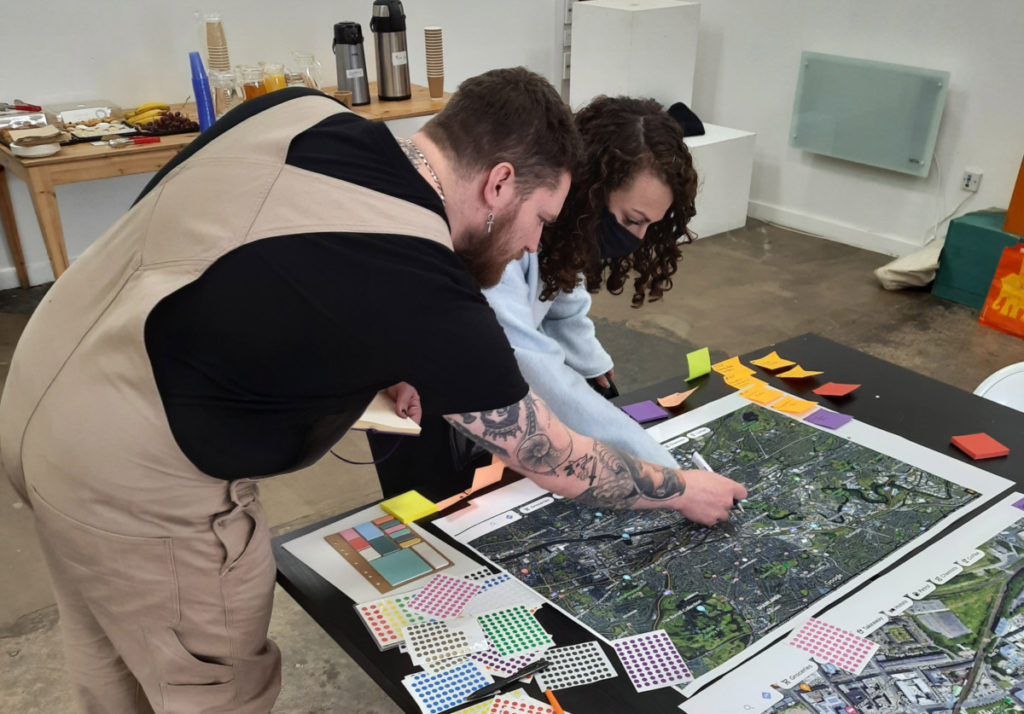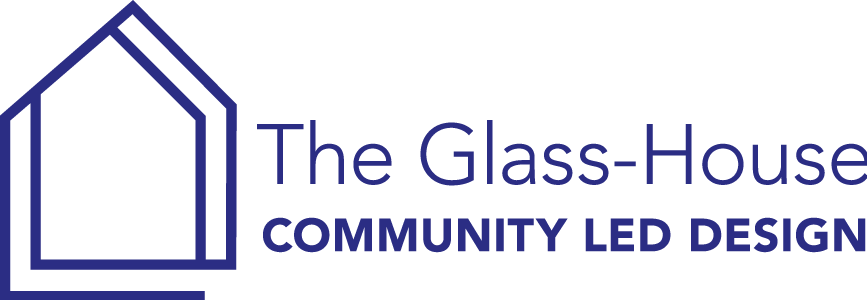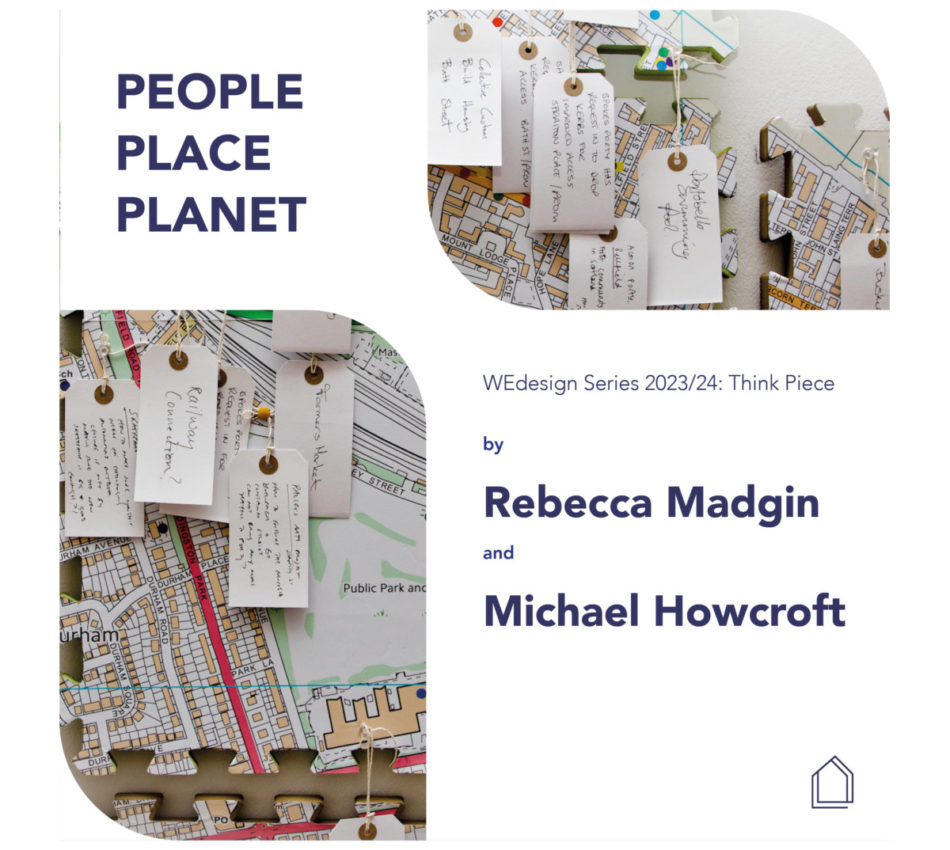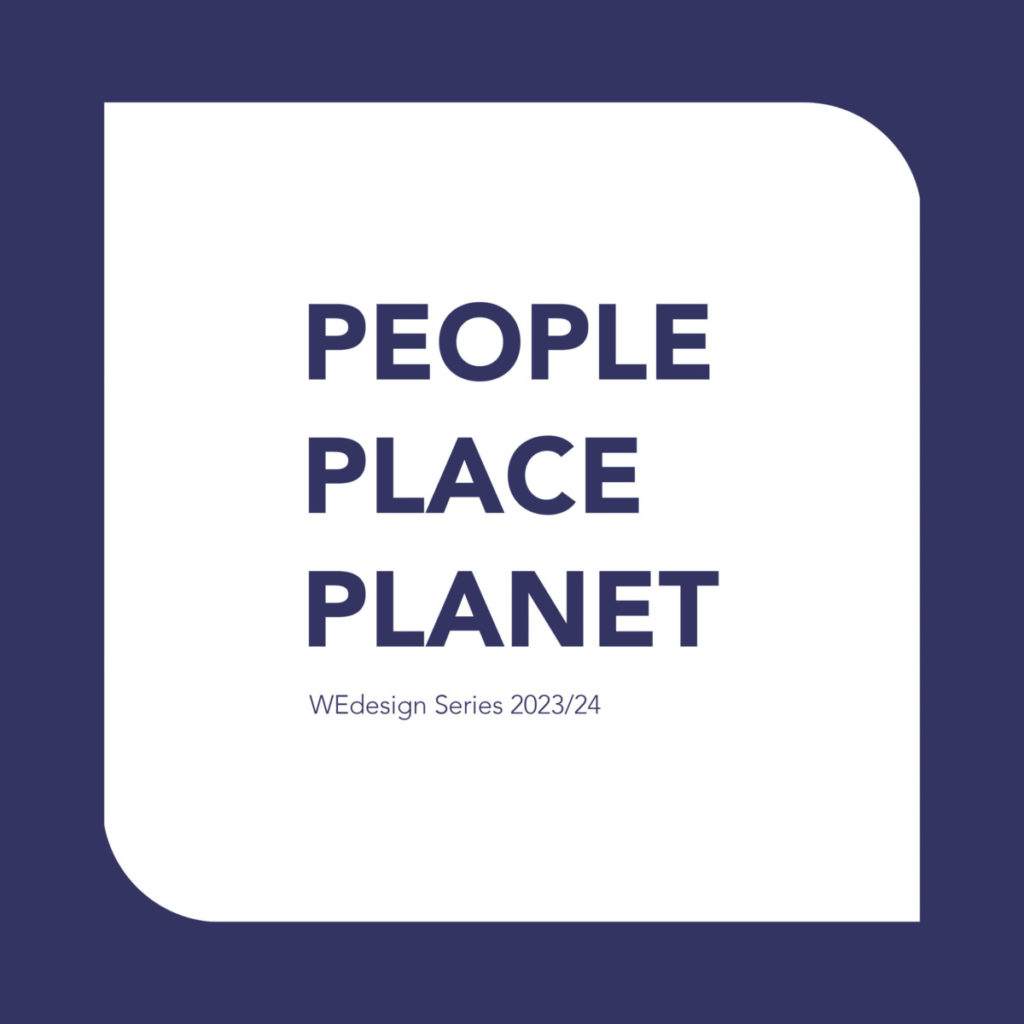Written by:
People, Place, Planet: Think Pieces, are a series of online blogs which will take our event series theme as a starting point and will offer an external voice and provocation.
In this edition of our People, Place, Planet: Think Pieces, Rebecca Madgin and Michael Howcroft set out some of the key challenges for place-based policy and how Phase Two of the Arts and Humanities Research Council Place Programme seeks to overcome them.
Mapping Out What’s Next for People-centred, Place-led Work: Reflections from the Arts and Humanities Research Council Place-Based Research Programme
Our work responds to the high priority of ‘place’ within the UK and global policy landscapes, and the cross-sectoral initiatives focused on placemaking and redistributing resources to places most in need. Phase One of the AHRC Place Programme (2021-2023) culminated in a report which argued for a people-centred, place-led approach that holds the lived, felt, geographic and economic dimensions of place together to ensure that policies and practices are developed in equitable partnerships with communities and professionals. Phase Two of the programme runs until 2027 and a key objective is to test how the people-centred, place-led principles set out in the report can be embedded through organisational systems and policy at different scales, sectors and governments in all four nations of the United Kingdom. Our goal is to work with partners from inside and outside academia to bridge the evidence, systems and policy gaps that influence people-centred approaches to place-based work.
In our work we start from the position that places aren’t blank canvases but instead are richly and collectively woven tapestries comprised of meanings, memories, lived and felt experiences. They are therefore not just geographic locations to which economic resource can be allocated, boundaries drawn, and policies enacted. Above all places matter to us not just because of where they are but because of how we live, work and play in them. So far, so obvious? Well, yes and no.

Whilst we may feel this is intuitively right and there are plenty of examples of good practice in terms of centring people within place-based policies and practices there remains, at a national level, a residual and persistent focus on place as a geographic and economic entity that needs to be ‘fixed’ through ‘one size fits all’ approaches. Indeed, the UK Treasury definition of ‘place-based’ makes no mention of the meanings, memories, lived and felt experiences that each one of us produces every day in our places. They are therefore, in this context, hidden and silent. However, how we feel in and about places, and the felt relationships we have toward and within place, are crucial to what we can and want to do in place. What would be possible for people and place if we could better validate the emotional depth of place, sit with the conflicting stories and contested feelings about place and work from this rich local knowledge to drive forward a people-centred approach?
We believe that our lived and felt experiences that give meaning to place should be the starting point of place-based work and propose MAP as a way forward:
- Meaning: it all starts with meaning – why do places matter? How and why do meanings change over time and differ between people?
- Approaches: to access meaning we need more than numbers. We need creative approaches that can empower each of us to explain why place matters to us and what we need our places to be.
- Processes: we need to ensure our practices, policies and partnerships are inclusive and equitable so we can fully understand, value, and work from the meanings in place.
Each element of MAP is important but they need to be seen as indivisible. Our hope is that the MAP approach stimulates conversation and action by providing a route towards more of us doing things differently. As we move into the next phase of the Programme I invite you to work with us to ask where can people-centred, place-led work go next. We will start by bringing together all of these great examples of genuine people-centred work from community groups, charitable organisations, third-sector organisations, local authorities, academic partnerships and the private sector. We want to collectively pool our experiences in ways that can both identify key opportunities and challenges and drive forward actions that more deeply embed people-centred, place-led work. If you have examples you’d like to share or would like to talk through collaborative opportunities then please do reach out to us.
About the Authors
Rebecca Madgin

Dr Rebecca Madgin is Professor of Urban Studies at the University of Glasgow and Programme Director for the Arts and Humanities Research Council’s Place-Based Research Programme. Rebecca is an urban historian who works on place, placemaking and the role of heritage within urban development initiatives. Rebecca is particularly interested in lived and felt experiences of place and the relationship between the economic and emotional value of historic places. Rebecca has published widely on these topics using historical and contemporary examples drawn from urban and rural places across the UK and internationally. Rebecca is an Associate Member of the Royal Town Planning Institute and a member of Historic England’s Historic Places Panel.
Twitter: @imadgination03
Website: www.gla.ac.uk/place
Michael Howcroft

Michael Howcroft is a Research Associate in the Urban Studies Department, working on the AHRC Place Programme. He held an ESRC Post-Doctoral Research Fellowship at the University of Southampton (2022-2023) and was Research Fellow at the Southampton Institute for Arts and Humanities (2021-2023), working on the AHRC funded Feeling Towns project. He was also Research Associate at the University of Sheffield (2022), on the Spaces of Hope project. With an earlier career as an actor and director, Michael is an experienced facilitator of focus groups and creative workshops, and his projects incorporate mixed methods, ethnographic, place-based approaches.
Twitter @mjhowcroft
About the WEdesign 2023/24 Series: People, Place, Planet
People, Place, Planet is our theme for The Glass-House 2023/24 WEdesign series.
As we continue to shape our places, we are faced with the huge challenge of balancing our personal needs, the collective needs of our communities and those of our increasingly fragile planet.
This series will aim to identify and explore the opportunities and synergies that exist when we strive to balance people, place and planet in placemaking.
How can we think differently about how we shape our places? How can we collaborate more through design and placemaking to value and respect people, place and planet equally?
To find out more about the full 2023/24 series, visit our People, Place, Planet page on The Glass-House website.
WEdesign is The Glass-House’s annual series of free interactive public events, held online and in-person in cities across the UK, where we explore collaborative design in placemaking through discussion, debate and playful co-design activities.
To find out more about the WEdesign Programme, visit the WEdesign page on The Glass-House website.
WEdesign is supported by the Ove Arup Foundation.


